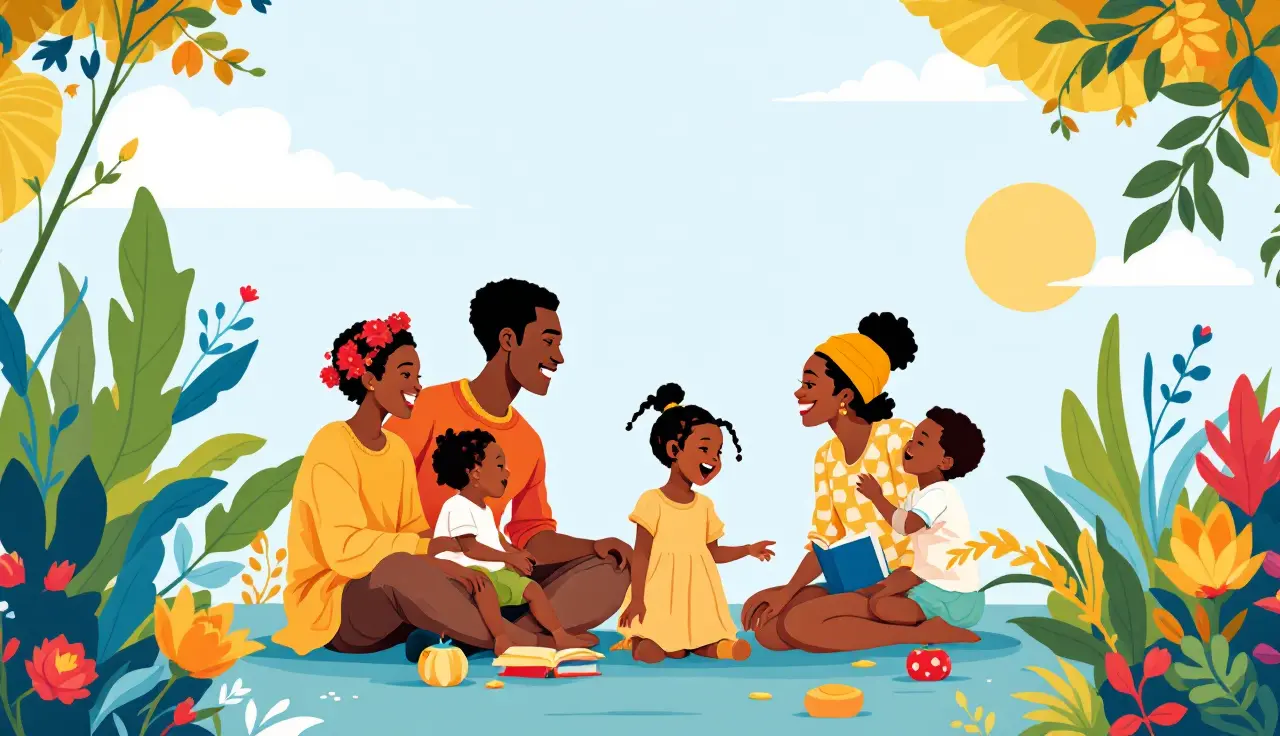By Lionel Kubwimana
••5 min read
Navigate relatives testing child language with ease. Empower your kids to embrace their heritage using gentle corrections and real examples. Keep family bonds strong!

You know that moment. Your child walks into a family gathering, and suddenly Auntie calls them over. "Come here, sweetie! Say something in our language!"
Your heart does a little flip. Will they remember the words you've been practicing? Will they freeze up? Will you have to manage that awkward silence while everyone watches?
If you're nodding along, you're not alone. Many parents in the African diaspora face these moments where family members test our kids' language skills. It comes from love, but it can still feel stressful.
Here's the good news: you can handle these situations with grace while keeping your culture alive and strong in your home.
Teaching your kids their heritage language isn't just about words. It's about:
Every word they learn is a gift you're giving them for life.
You don't need fancy programs or expensive classes. Begin with simple greetings and common words:
Make it natural. Use these words during normal activities like eating breakfast or getting ready for bed.
Language apps can turn learning into playtime. Download apps that teach your heritage language and make it a family activity. Spend 10-15 minutes after dinner playing language games together on a tablet or phone.
Your kids will love the interactive games, and you'll love seeing their progress.
Kids love stories, especially about their parents. Share tales from when you were young:
Tell these stories in both languages. Your kids will hang on every word and naturally pick up new vocabulary.
Prepare your child (and yourself) by:
When a relative puts your child on the spot:
Remember: progress matters more than perfection.
Pick one evening each month for your family culture night:
Make it special but not stressful. The goal is connection, not a perfect performance.
Instead of letting family members surprise your kids with tests, involve them in planned activities:
This way, relatives become helpers in your child's learning journey, not judges.
Every time your child uses a new word or shows interest in their heritage, celebrate it:
These celebrations build confidence and make learning feel rewarding.
The Johnson Family started with just one Yoruba phrase at dinner each night. Within six months, their 8-year-old was confidently greeting her grandmother in Yoruba and asking for seconds in their heritage language.
The Okafor Family used Saturday morning cooking sessions to teach Igbo words for ingredients and cooking methods. Now their kids can help translate recipes for visiting relatives.
The Mensah Family turned car rides into story time, sharing Akan folktales during their commute. Their children now tell these stories to their cousins at family gatherings.
Some days, your child won't remember the words. Some family gatherings might feel awkward. That's normal and okay.
Here's what to remember:
Be patient with yourself and your child. You're both learning.
Find other parents who share your goals:
You don't have to do this alone.
Look for:
These resources can supplement what you're doing at home.
Teaching your children their heritage language while managing family expectations isn't always easy. But every small step you take is building something beautiful for your family's future.
Your kids are lucky to have a parent who cares about keeping their culture alive. Even when relatives test their language skills and things feel awkward, you're giving them roots that will ground them throughout their lives.
Start small this week. Pick one new phrase to practice together. Plan one simple cultural activity for the weekend. Celebrate when your child tries, regardless of the outcome.
Remember: you're not just teaching words. You're passing down identity, pride, and connection. That's a gift that will last generations.
You've got this. Every word matters. Every story counts. Every effort you make is helping your child build a strong, proud identity that honors both where they come from and where they're going.
Your heritage is their inheritance. Keep sharing it with love, patience, and pride.